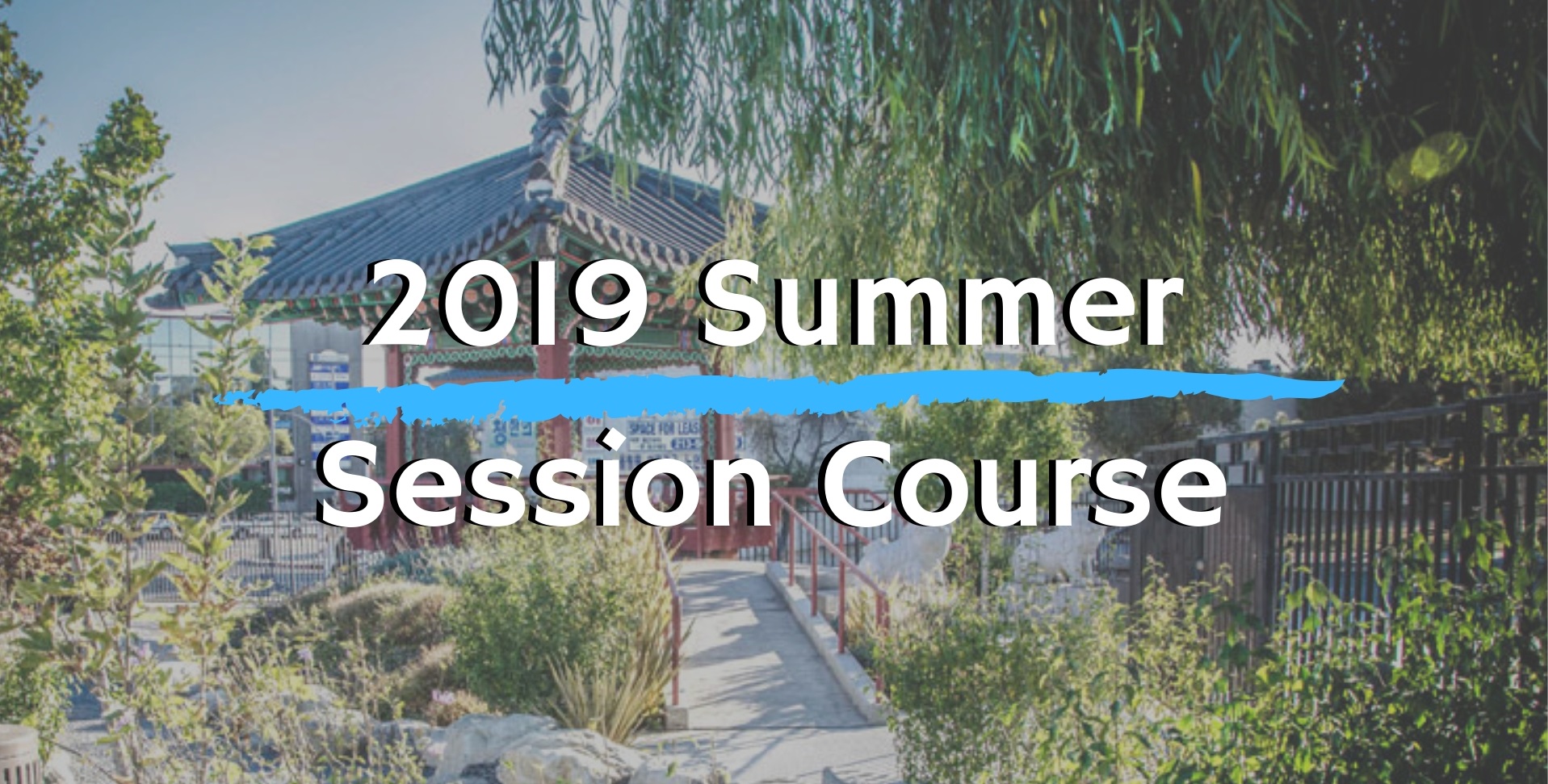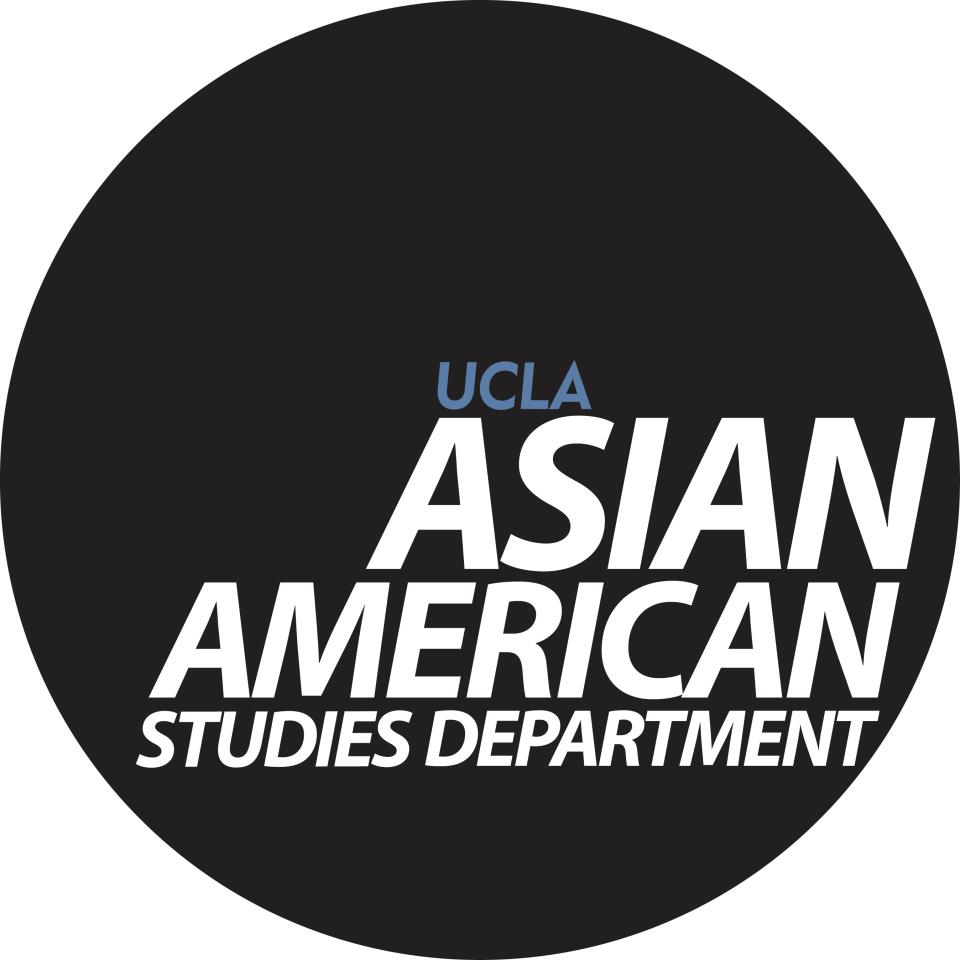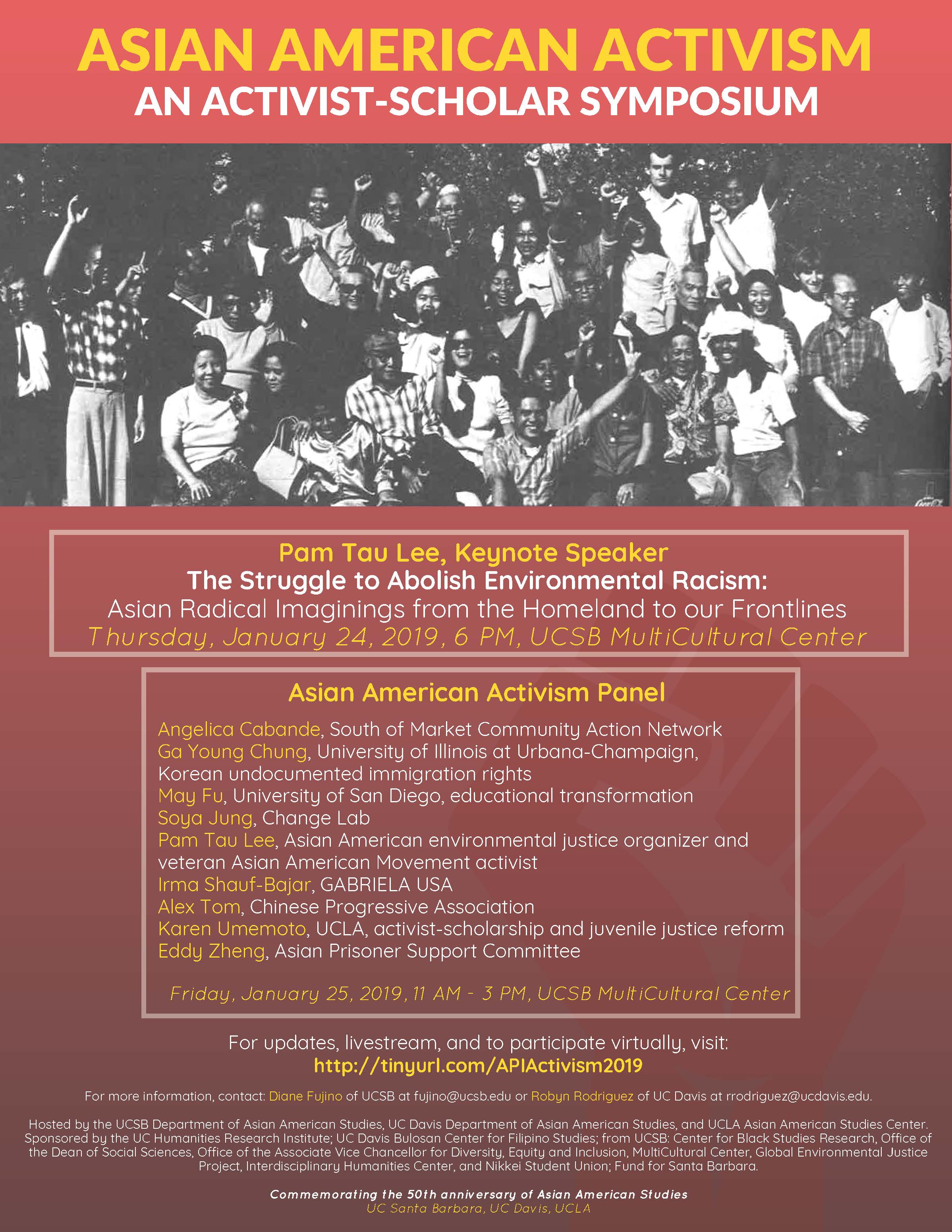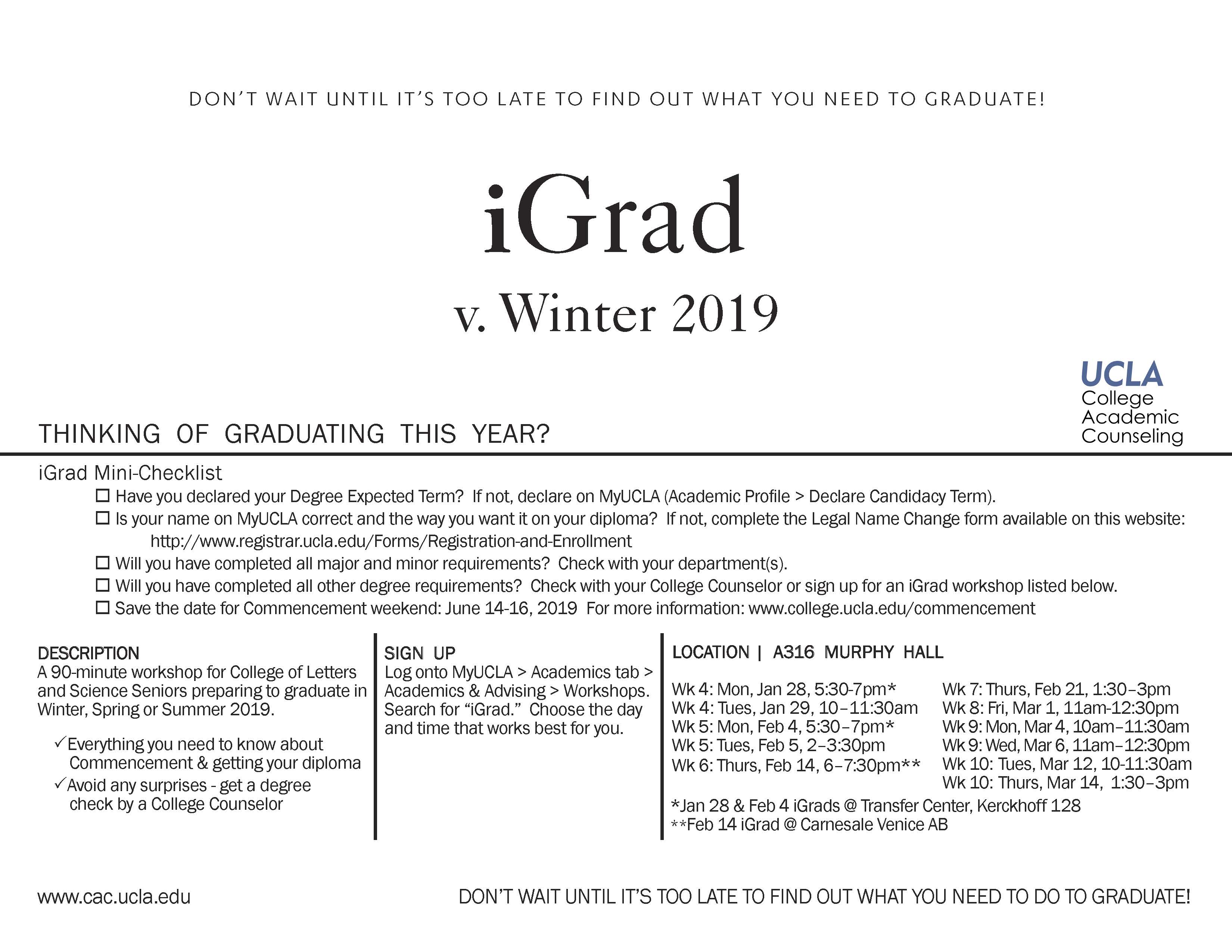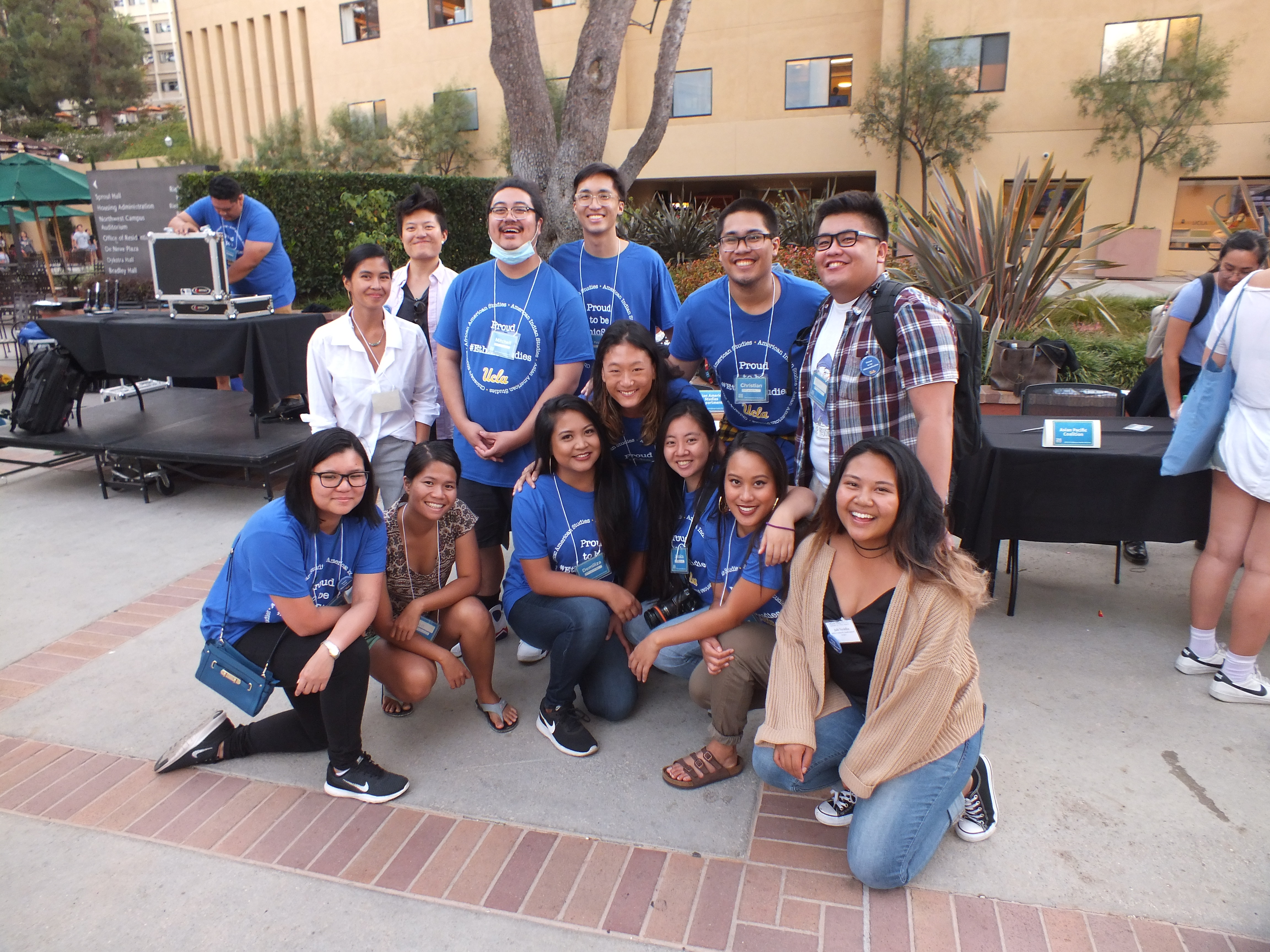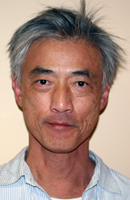Call for Papers: Asian American and Pacific Islander Activism
Commemorating 50 Years of Asian American Studies
Guest Editors: Professor Diane C. Fujino (UC Santa Barbara) and Professor Robyn Rodriguez (UC Davis)
Publication Date: Issue planned for Fall 2019 publication
Due Date: Paper submissions (5,000-6,000 words, excluding endnotes) due November 1, 2018
The field of Asian American studies emerged out of activist struggles, and yet social movement studies are not centralized in Asian American studies in ways comparable to other areas of ethnic studies. Today, at the 50th anniversary of the founding of the field, there are growing reasons to examine Asian American activism. The current rise in social movement activity and shifts in academic inquiry encourage new questions to be raised about Asian American and Pacific Islander activism.
This issue of Amerasia Journal seeks research-based essays that address the meanings and forms of Asian American activism historically or currently. Areas of study may focus on, but are not limited to, those identified in Diane Fujino’s article, “Who Studies the Asian American Movement?: A Historiographical Analysis” (2008), as they attend to national and international contexts. Examples of topics include:
Local and global processes: What can the study of local activism tell us about processes of social change and racialized and intersectional forms of inequality? How have international ideologies and circuits shaped local organizing? What tensions exist between local, national, and global organizing frameworks, and how might there be productive uses of these tensions?
Pan-ethnic and Third World solidarities: How does the study of Asian American and Pacific Islander activism produce new knowledge about the meanings of solidarities? What forms of solidarity exist today that differ from the past?
Theories animating Asian American activism: How do theories of settler colonialism, Third World decolonization, different varieties of Marxism, or the Black Radical Tradition necessitate a rethinking of Asian American activism? How might a framework that centers racialized gender and sexuality shift the ways we think about Asian American activism?
Cultural production and media: How has art and culture shaped political consciousness and practices? What is the relationship between Asian American cultural production and political organizing? How have social media and new technologies impacted organizing?
Political contexts and organizing strategies: How did the collective leadership models of the Asian American Movement impact ideas and practices, organizing and outcomes? What is the role of the radical imaginary in Asian American activism? What is the relationship between political economy and social movement activities?
History and praxis: How does knowledge about the Long Sixties shape Asian American activism today? What new theories about race and liberation emerge from the study of Asian American and Pacific Islander activism?
We welcome submissions from different disciplinary approaches, including, but not limited to, history, sociology, and cultural and gender studies. We especially welcome papers that situate Asian American and Pacific Islander activist studies within relational or comparative, historical, or spatial contexts using interdisciplinary approaches.
Submission Guidelines and Review Process
The guest editors, in consultation with the Amerasia Journal editorial staff and peer reviewers, make decisions on the final essays:
Initial review of submitted papers by guest editors and Amerasia Journal editorial staff
Papers approved by editors will undergo blind peer review
Revision of accepted peer-reviewed papers and final submission
All correspondence should be directed to arnoldpan@ucla.edu and include “Asian American and Pacific Islander Activism” in the subject line.



